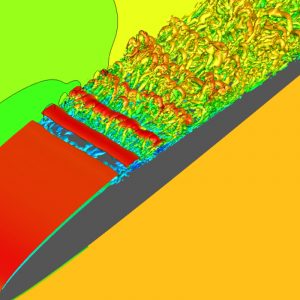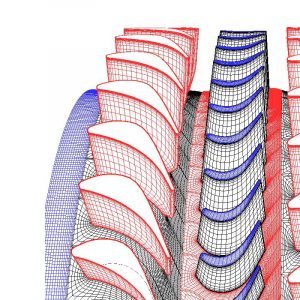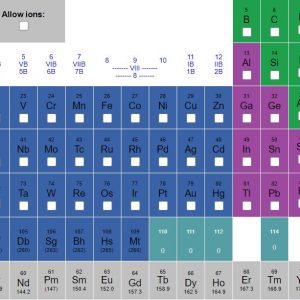
International Workshop on High-Order CFD Methods
International collaboration providing enhanced understanding of the most current and developing needs for CFD researchers and managers.
Our research advances computational modeling and analysis methods for aerospace propulsion components and systems. We develop physical models for turbulence, concentrating on scale-resolving approaches such as large-eddy simulation; combustion, including advanced kinetics and turbulence-chemistry interactions; and heat transfer.
Using multi-physics analyses, we investigate turbomachinery aerodynamic-structural interactions, active film cooling of propulsion components, and aircraft icing. Research into advanced numerical algorithms such as flux-reconstruction provides highly accurate solutions on unstructured meshes.
Experimental and computational researchers collaborate to conduct detailed and sophisticated experiments to provide experimental data necessary to improve and validate computational models.
For more information, contact H.T. Huynh, or Nicholas Georgiadis.

International collaboration providing enhanced understanding of the most current and developing needs for CFD researchers and managers.


Conducting fundamental and applied research aimed at advancing technologies for gas turbine engine components, including compressors, fans and turbines.


The NASA Computer program CEA (Chemical Equilibrium with Applications) calculates chemical equilibrium compositions and properties of complex mixtures. Applications include assigned thermodynamic states, theoretical rocket performance, Chapman-Jouguet detonations, and shock-tube parameters for incident and reflected shocks. CEA represents the latest in a number of computer programs that have been developed at the NASA Lewis (now … Read the rest ⇢
